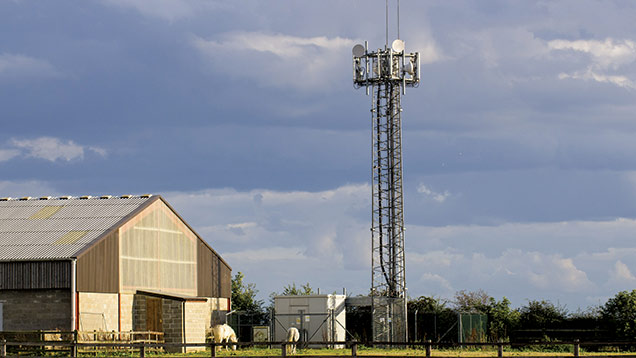Landowners: Get the most out of a phone mast lease
 © FLPA/Rex
© FLPA/Rex The UK’s mobile phone network presents income opportunities for landowners. But lease negotiations can be thorny. Robert Paul, head of Strutt & Parker’s telecoms group, outlines what to be aware of.
There is a huge need to improve mobile network coverage across the UK, and with 4G still in its infancy and 5G being mooted, it is likely that more sites will be required.
See also: Top tips for landowners with mobile phone masts
Many landowners have already benefited. In 2013, the government rolled out the mobile infrastructure project (MIP) to improve 2G coverage and £150m was allocated to build new sites. Some of these are still being acquired.
However, dealing with telecoms giants – whether over a new or existing lease – can present challenges.
Costs
Agree that operators should meet all of the landowner’s legal and professional costs arising, irrespective of whether or not a lease completes. Typically, legal and professional costs will be upwards of £1,000 each.
Security of tenure
The 1954 Landlord and Tenant Act gives commercial tenants an automatic right to a new lease upon expiry, unless the parties “contract out” of this provision. The issue is one of future costs and negotiating position on lease renewal.
10 top tips for dealing with network operators
- Obtain confirmation that the operator will pay all reasonable professional costs incurred even if the lease does not complete.
- The headline rent is not the only important point.
- Always contract out of the security of tenure provisions of the Landlord and Tenant Act 1954.
- Do not allow open rights to share the site.
- Do not allow unrestricted network sharing.
- Be precise on which operators can have “beneficial use”.
- Equipment rights – be clear, unambiguous and do not leave it open ended.
- RPI rent reviews will future proof your rent.
- Understand the implications of the Telecoms Code.
- Do not give early access before the lease is completed.
Site sharing
Due to the many mergers, existing operators will often request open sharing rights with other companies without further payment to landowners. Resist this as far as possible or be specific about which operators can share the site. If possible, agree an additional payment – normally about £2,500 for each additional operator.
Network sharing
Again, operators request rights to share the antennas and cables with other operators. This is extremely hard to police, but landowners should be specific about who can obtain “beneficial use” from the site.
Rent
The headline rent is only one important aspect. Single user sites are still leasing at £5,000/year or more, with further payments for network or site sharing. A tightly drawn lease can see additional rights being sought by operators – renegotiations of these often provide the fastest route to rental growth.
Rent reviews
In a highly polarised market, where operators hold all rental data, rent review clauses become more critical.
The operators’ preference is for rents to be set to the open market – anyone agreeing to this can expect a fight to maintain rental levels at review. Reviews should be three-yearly to either RPI or open market, whichever is the greater, to avoid rental decreases.
Equipment rights
These should be clear and unambiguous. Remember that there is more to ‘equipment’ than the antennas and other ‘ancillary’ kit can be substantial. Be clear whether such items are allowed. Do not allow the operators to ‘add to’ the equipment specification, as this gives unlimited rights.
Beware the telecoms code
Many landowners forget that telecoms operators benefit from compulsory powers, just like a utility company. Any written agreement granting access will give an operator code protection and will make their removal difficult.
Early access
Operators will often ask for access before the lease is completed. They will do this under what purports to be a short-term licence and often for a small fee to the landowner. However, once on site, they lose all sense of urgency and getting a lease completed can be extremely difficult – plus they will have the protection of the Telecoms Code.
A final note
Nearly every landlord of a radio mast in the UK will have been written to with a request to renegotiate or to allow some site sharing or a transfer of the lease to another company.
The perceived threat of decommissioning that drives this is commonly not real. Landowners should take advice and in most cases the costs of obtaining that advice should be met by the operators.
UK coverage is far from complete and capacity issues will demand many more sites over the next few years. Landowners need to ensure they secure leases on sensible terms and not simply those that the operators might appear to be insisting upon.
